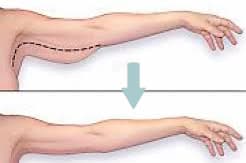Sugar makes cancer tumours more aggressive: Study
PTI | Oct 16, 2017, 15:16 IST
LONDON: Scientists have found that sugar 'awakens' cancer cells and makes tumours more aggressive, according to a nine-year long research that is being hailed as a crucial breakthrough in cancer research.
The research project conducted by Vlaams Instituut voor Biotechnologie (VIB), Katholieke Universiteit Leuven (KU Leuven) and Vrije Universiteit Brussel (VUB) in Belgium clarified how the Warburg effect, a phenomenon in which cancer cells rapidly break down sugars, stimulates tumour growth.
The discovery provides evidence for a positive correlation between sugar and cancer, which may have far- reaching impacts on tailor-made diets for cancer patients.
The project's focus was the Warburg effect, or the observation that tumours convert significantly higher amounts of sugar into lactate compared to healthy tissues.
As one of the most prominent features of cancer cells, this phenomenon has been extensively studied and even used to detect brain tumours, among other applications.
But so far, it has been unclear whether the effect is merely a symptom of cancer, or a cause.
While earlier research into cancer cell metabolism focused on mapping out metabolic peculiarities, this study - published in the journal Nature Communications - clarifies the link between metabolic deviation and oncogenic potency in cancerous cells.
"Our research reveals how the hyperactive sugar consumption of cancerous cells leads to a vicious cycle of continued stimulation of cancer development and growth," said Johan Thevelein from VIB-KU Leuven.
"Thus, it is able to explain the correlation between the strength of the Warburg effect and tumour aggressiveness. This link between sugar and cancer has sweeping consequences," said Thevelein.
"Our results provide a foundation for future research in this domain, which can now be performed with a much more precise and relevant focus," he said.
Yeast cell research was essential to the discovery, as these cells contain the same 'Ras' proteins commonly found in tumour cells, which can cause cancer in mutated form.
Using yeast as a model organism, researchers examined the connection between Ras activity and the highly active sugar metabolism in yeast.
"The main advantage of using yeast was that our research was not affected by the additional regulatory mechanisms of mammalian cells, which conceal crucial underlying processes," said Thevelein.
"We were thus able to target this process in yeast cells and confirm its presence in mammalian cells," he said.
The research project conducted by Vlaams Instituut voor Biotechnologie (VIB), Katholieke Universiteit Leuven (KU Leuven) and Vrije Universiteit Brussel (VUB) in Belgium clarified how the Warburg effect, a phenomenon in which cancer cells rapidly break down sugars, stimulates tumour growth.
The discovery provides evidence for a positive correlation between sugar and cancer, which may have far- reaching impacts on tailor-made diets for cancer patients.
The project's focus was the Warburg effect, or the observation that tumours convert significantly higher amounts of sugar into lactate compared to healthy tissues.
As one of the most prominent features of cancer cells, this phenomenon has been extensively studied and even used to detect brain tumours, among other applications.
But so far, it has been unclear whether the effect is merely a symptom of cancer, or a cause.
While earlier research into cancer cell metabolism focused on mapping out metabolic peculiarities, this study - published in the journal Nature Communications - clarifies the link between metabolic deviation and oncogenic potency in cancerous cells.
"Our research reveals how the hyperactive sugar consumption of cancerous cells leads to a vicious cycle of continued stimulation of cancer development and growth," said Johan Thevelein from VIB-KU Leuven.
"Thus, it is able to explain the correlation between the strength of the Warburg effect and tumour aggressiveness. This link between sugar and cancer has sweeping consequences," said Thevelein.
"Our results provide a foundation for future research in this domain, which can now be performed with a much more precise and relevant focus," he said.
Yeast cell research was essential to the discovery, as these cells contain the same 'Ras' proteins commonly found in tumour cells, which can cause cancer in mutated form.
Using yeast as a model organism, researchers examined the connection between Ras activity and the highly active sugar metabolism in yeast.
"The main advantage of using yeast was that our research was not affected by the additional regulatory mechanisms of mammalian cells, which conceal crucial underlying processes," said Thevelein.
"We were thus able to target this process in yeast cells and confirm its presence in mammalian cells," he said.
Get latest news & live updates on the go on your pc with News App. Download The Times of India news app for your device.
From around the web
More from The Times of India
From the Web
More From The Times of India

Actress: “Eating THIS Every Morning Changed My Life”
ActivatedYou
10 Places Where You Can Retire for $200K
MoneyWise
Look Younger By Becoming An "Exceptional Skin Ager"
Beverly Hills MD Skincare
Don't Buy Furniture Until You See This Site
Wayfair
Meet the Luxurious New Acura MDX - Build & Price Yours Today
Acura






































All Comments ()+^ Back to Top
Refrain from posting comments that are obscene, defamatory or inflammatory, and do not indulge in personal attacks, name calling or inciting hatred against any community. Help us delete comments that do not follow these guidelines by marking them offensive. Let's work together to keep the conversation civil.
HIDE